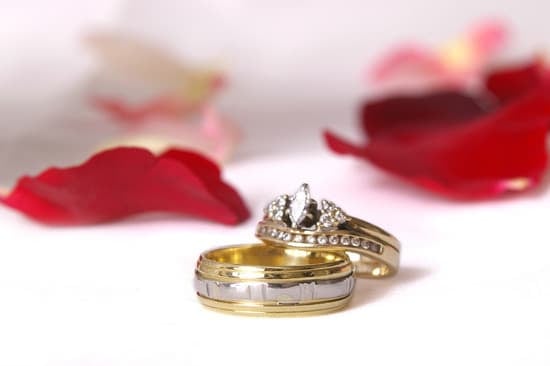Are pearls bad luck at a wedding? This age-old question has sparked many debates and discussions over the years. In this article, we will delve into the superstition surrounding pearls at weddings, exploring their historical significance, cultural beliefs, modern perspectives, and alternative meanings. Let’s uncover the truth behind the legend and origins of pearls being considered bad luck at weddings.
Pearls have been a staple in wedding tradition for centuries, symbolizing purity, innocence, and love. However, there is also a prevalent belief that wearing pearls on your wedding day can bring bad luck. This superstition has led many brides to reconsider incorporating pearls into their bridal attire.
Throughout history, pearls have been revered for their beauty and elegance. But how did they become associated with bad luck at weddings? We will explore the legend and origins of this superstition, shedding light on the cultural beliefs and traditions that have perpetuated this myth over time.
As we unravel the mystery of pearls being perceived as bad luck at weddings, we will also examine modern perspectives on using pearls in wedding attire. Additionally, we will explore alternative meanings and symbolism of pearls in weddings to provide a more holistic understanding of their significance.
Historical Significance of Pearls in Wedding Tradition
When it comes to wedding traditions, pearls have played a significant role throughout history. Their lustrous and timeless beauty has made them a popular choice for adorning brides on their special day. The historical significance of pearls in wedding tradition dates back centuries and holds a deep symbolic meaning for many cultures around the world.
Symbol of Purity and Innocence
In many ancient cultures, pearls were believed to symbolize purity and innocence, making them the perfect accessory for a bride on her wedding day. The pristine and immaculate nature of pearls was often associated with the ideals of marriage, embodying the bride’s purity as she embarked on a new life journey with her partner.
Symbol of Prosperity and Wealth
Pearls were also highly valued in many societies, representing prosperity and wealth. In some cultures, the exchange of pearls between families served as a symbol of unity and was believed to bring good fortune to the newlyweds. This association with abundance and prosperity made pearls a coveted adornment for brides from privileged backgrounds.
Traditional Wedding Attire
Throughout history, pearls have been incorporated into traditional wedding attire in various forms, including jewelry, hair accessories, and even embellishments on bridal gowns. Their elegant presence added a touch of sophistication and refinement to the bride’s ensemble, enhancing her beauty on this auspicious occasion.
As we explore the historical significance of pearls in wedding tradition, it is evident that they have held profound meaning across different cultures. The symbolism of purity, innocence, prosperity, and wealth has contributed to the enduring appeal of pearls as an essential element in weddings throughout history.
The Legend and Origins of Pearls Being Bad Luck at Weddings
The belief that pearls are bad luck at weddings has been prevalent in various cultures for centuries. This superstition has its origins in ancient Greek mythology, where it was believed that pearls were the tears of the gods and should not be worn during weddings as they would bring sorrow and tears to the marriage. Additionally, in some cultures, pearls were associated with death and were believed to bring misfortune if worn during a joyful occasion like a wedding.
The legend of pearls being bad luck at weddings has also been linked to historical superstitions about the shape of pearls resembling tears, symbolizing future sadness or sorrow within the marriage. These superstitions have been passed down through generations and have ingrained a sense of fear or caution when it comes to incorporating pearls into wedding attire.
Despite these negative beliefs, it’s important to note that not all cultures share this superstition. For example, in Asian cultures, particularly in China, Japan, and India, pearls are considered symbols of purity and wisdom, making them highly desirable for wedding jewelry. It’s fascinating to see how different cultural beliefs can influence our perceptions of certain elements in weddings, including pearls.
Cultural Beliefs and Superstitions Surrounding Pearls and Weddings
Pearls in Different Cultures
Throughout history, pearls have held significant cultural and traditional value in various societies around the world. In many Eastern cultures, pearls are believed to symbolize purity, integrity, and wisdom. They are often associated with the moon and the goddess of love, making them a popular choice for wedding jewelry. However, in some Western cultures, there is a long-standing superstition that wearing pearls on your wedding day can bring bad luck.
Superstitions Surrounding Pearls at Weddings
The belief that pearls are bad luck at weddings has been prevalent in Western culture for centuries. The origins of this superstition can be traced back to ancient Greek mythology, where it was believed that pearls were tears of the gods or even small droplets of water from heaven.
These tears symbolized sorrow and sadness, leading to the association with bad luck when worn on a joyous occasion like a wedding. Additionally, some believe that the shape of pearls resembles that of tears, further reinforcing the negative connotation.
Traditional Wedding Practices
In traditional Western wedding customs, brides often refrain from wearing pearls on their wedding day out of fear of attracting misfortune. Instead, they opt for other gemstones and materials that are considered to bring good luck and prosperity. However, as modern perspectives on weddings continue to evolve, many couples are challenging these superstitions and choosing to incorporate pearls into their wedding attire as a symbol of timeless beauty and elegance.
Overall, while historical superstitions regarding pearls at weddings may still persist in certain cultures, many individuals are choosing to embrace the beauty and symbolism of pearls without fear of bad luck. Couples today are redefining traditions and incorporating meaningful elements into their wedding celebrations regardless of age-old beliefs. Whether through jewelry or decorative accents, pearls continue to hold deep significance for many couples as they exchange vows and celebrate their love.
Modern Perspectives on Using Pearls in Wedding Attire
Pearls have long been a staple in traditional wedding attire, symbolizing purity, innocence, and a timeless elegance. However, some may wonder: are pearls bad luck at a wedding? Despite the superstitions and myths surrounding pearls in various cultures, modern perspectives on using pearls in wedding attire have evolved to embrace their beauty and significance.
In today’s weddings, many brides are opting to incorporate pearls into their bridal ensemble to add a touch of sophistication and classic charm. Whether it’s a dainty pearl necklace, elegant pearl earrings, or even a stunning pearl-adorned veil, these lustrous gems continue to be a popular choice for brides looking to elevate their bridal look.
To further debunk the myth of pearls being bad luck at weddings, it’s important to consider the personal beliefs and superstitions of the couple getting married. While some may adhere to cultural traditions that discourage wearing pearls on the wedding day, many couples are more open-minded and choose to embrace the symbolic meaning of pearls as a representation of love and unity.
When it comes to modern perspectives on using pearls in wedding attire, it’s essential for couples to make decisions based on their own values and preferences rather than being swayed by outdated superstitions. Ultimately, incorporating pearls into wedding attire is a beautiful way to honor tradition while celebrating love and commitment.
- Pearls symbolize purity, innocence, and eternity.
- Brides can embrace modern perspectives by incorporating different pearl accessories.
- Couples should make decisions based on their own values rather than superstitions.
Alternative Meanings and Symbolism of Pearls in Weddings
Pearls have long been associated with purity, innocence, and beauty, making them a popular choice for wedding jewelry and accessories. While there are superstitions that claim pearls are bad luck at weddings, many cultures also view pearls as symbols of good fortune, prosperity, and love. In fact, in some Eastern traditions, pearls are believed to bring harmony to relationships and attract positive energy.
In ancient Greek mythology, pearls were thought to be tears of joy shed by the goddess Aphrodite. This association with love and happiness has resulted in the belief that wearing pearls can bring marital bliss and strengthen the bond between partners. Similarly, in Hindu culture, pearls are considered auspicious and are often included in bridal jewelry as a symbol of purity and emotional balance.
In modern times, the negative connotations surrounding pearls at weddings have diminished significantly. Many couples now embrace the timeless elegance of pearls as a way to add a touch of sophistication to their wedding attire. Furthermore, contemporary interpretations emphasize the natural beauty and luster of pearls rather than focusing on superstitions or myths.
| Meaning | Symbolism |
|---|---|
| Good Fortune | Believed to bring prosperity and positive energy |
| Auspiciousness | Viewed as a symbol of purity and emotional balance in various cultures |
| Timeless Elegance | Modern interpretation focuses on the beauty and sophistication of pearls |
Tips for Incorporating Pearls Into Wedding Planning Without Superstition
Pearls have been a symbol of elegance, beauty, and purity for centuries, making them a popular choice for bridal attire. However, there is a superstition that pearls are bad luck at weddings. Despite this belief, many brides still choose to incorporate pearls into their wedding look. If you’re planning to include pearls in your wedding but are worried about the superstition, there are several ways to do so without inviting bad luck.
One way to incorporate pearls into your wedding without superstition is by choosing pearl jewelry that has been passed down through generations. Family heirlooms hold sentimental value and can bring good luck rather than bad. Whether it’s a necklace, bracelet, or pair of earrings, wearing pearls with a rich family history can add meaning and tradition to your special day.
Another option for incorporating pearls into your wedding is by choosing modern and unique pieces that blend traditional elegance with contemporary style. Look for pearl accessories that have a modern twist, such as asymmetrical designs or mixed-metal details. These updated versions of classic pearl jewelry can help dispel any negative superstitions while adding a touch of sophistication to your bridal look.
If you’re still concerned about the superstition surrounding pearls at weddings, consider incorporating them into other aspects of your wedding besides your attire. For example, you could use pearl accents in your wedding decor or incorporate them into your floral arrangements. By using pearls in creative and unexpected ways throughout your wedding celebration, you can embrace their beauty and symbolism without worrying about bad luck on your special day.
Conclusion
In conclusion, the superstition that pearls are bad luck at weddings has been deeply ingrained in various cultures for centuries. However, as we have explored in this article, the historical significance of pearls in wedding tradition reveals a much more positive and meaningful symbolism. While the legend and origins of pearls being associated with bad luck are interesting to consider, it is important to recognize that cultural beliefs and superstitions surrounding pearls and weddings are not universal.
Furthermore, modern perspectives on using pearls in wedding attire highlight a shift towards embracing the beauty and elegance of these precious gemstones without fear of bad luck. It is also important to note that alternative meanings and symbolism of pearls in weddings, such as purity, innocence, and enduring love, offer couples the opportunity to incorporate these stunning gems into their wedding without concern for superstition.
Ultimately, there are ways to incorporate pearls into wedding planning without succumbing to superstitions. Couples can celebrate the timeless allure of pearls by integrating them into their wedding attire or decor with intentionality and positivity. By understanding the true significance and symbolism behind pearls in weddings, we can debunk the myth of pearls as bad luck and appreciate them for their beauty and enduring elegance on this special day.
Frequently Asked Questions
Is It OK to Wear Pearls to a Wedding?
It is generally okay to wear pearls to a wedding, as they are considered a timeless and elegant choice for jewelry. However, it’s important to consider the formality and style of the wedding when choosing pearl accessories.
What Do Pearls Symbolize at a Wedding?
Pearls symbolize purity, innocence, and love, making them an ideal choice for weddings. Wearing pearls can also signify tradition, as they have been a popular choice for bridal jewelry for centuries.
When Not to Wear Pearls?
It is not advisable to wear pearls when engaging in activities that may expose them to acids or chemicals, such as household cleaning or swimming in chlorinated pools. Pearls are also not suited for intense physical activities due to their delicate nature.

I have been involved in marriages for over 20 years helping couples and singles understand more about them.





